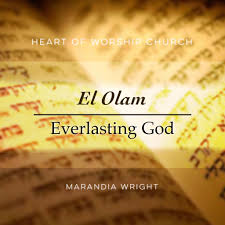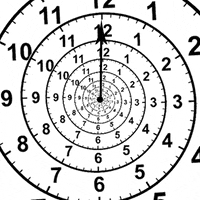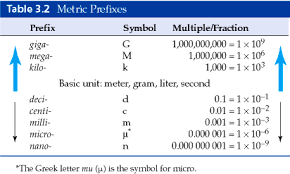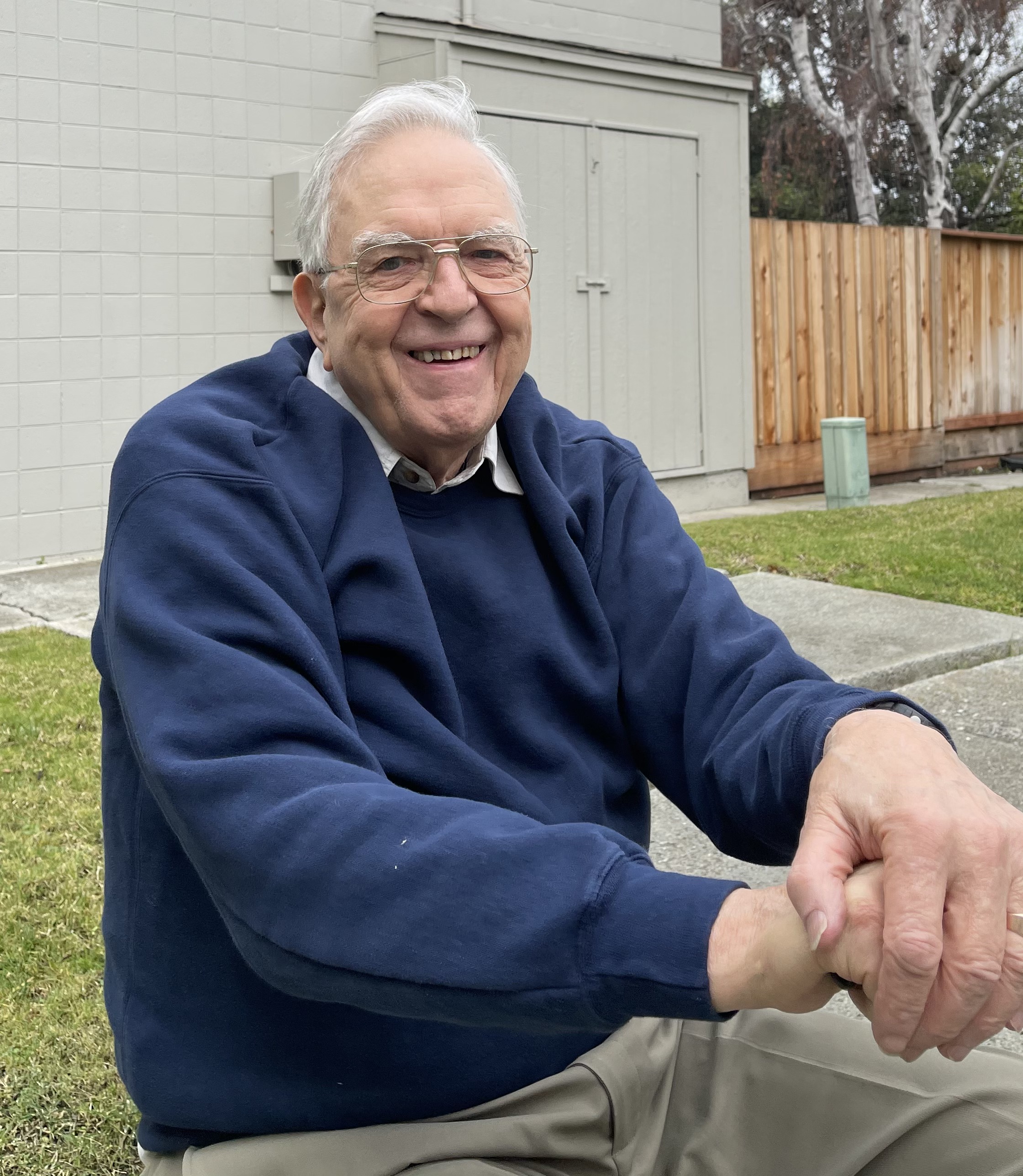Teach Me To Number My Nanoseconds
A nanosecond is one billionth of a second

A nanosecond is one billionth of a second

The Eternity of God, and Man’s Frailty
A Prayer of Moses the man of God.
Lord, You have been our dwelling place in all generations.
Before the mountains were brought forth,
Or ever You had formed the earth and the world,
Even from everlasting to everlasting, You are God.
You turn man to destruction,
And say, “Return, O children of men.”
For a thousand years in Your sight
Are like yesterday when it is past,
And like a watch in the night.
You carry them away like a flood;
They are like a sleep.
In the morning they are like grass which grows up:
In the morning it flourishes and grows up;
For we have been consumed by Your anger,
And by Your wrath we are terrified.
You have set our iniquities before You,
Our secret sins in the light of Your countenance.
For all our days have passed away in Your wrath;
We finish our years like a sigh.
The days of our lives are seventy years;
And if by reason of strength they are eighty years,
Yet their boast is only labor and sorrow;
For it is soon cut off, and we fly away.
Who knows the power of Your anger?
For as the fear of You, so is Your wrath.
So teach us to number our days,
That we may gain a heart of wisdom.
Return, O Lord!
How long?
And have compassion on Your servants.
Oh, satisfy us early with Your mercy,
That we may rejoice and be glad all our days!
Make us glad according to the days in which You have afflicted us,
The years in which we have seen evil.
Let Your work appear to Your servants,
And Your glory to their children.
And let the beauty of the Lord our God be upon us,
And establish the work of our hands for us;
Yes, establish the work of our hands.

 |
|
One of the puzzling problems in physics is known as "time's arrow." Since Einstein, time has been treated as a fourth dimension associated with length, width, and height as measures of "space-time." Time appears in many mathematical equations of physics; in most it does not matter whether time is minus or plus (i.e., whether it flows forward into the future or backwards into the past).
Time's arrow arises from the Second Law of Thermodynamics which states that energy is inexorably less available to do useful work as history moves forward. The overall tendency of all things in the material world is to run down, decay, rot, and fall apart. The "information content" of systems also decreases with the passage of time. In order to bring order out of chaos one must supply both outside energy and programming information. The Second Law implies a sad end to the universe known as a "heat death." [Thus the theory of the evolution of life from simple forms to complex is at most a hopeful myth]. Articles on the Nature of Time.
The entrance of evil in the early history of our universe is the reason we now live in a flawed and ruined creation. Even the laws of physics have been altered by the fall. This subjection of the natural world to "a bondage of decay" is described in Romans 8:18-25. The Apostle reminds us further that, due to Adam's sin, "our bodies are dead because of sin." Mankind, like nature, has been ruined so that all must die. Although God sustains the old creation He apparently does not ordinarily interfere with the Second Law. He is instead building a new creation for His redeemed people to dwell in.
God builds a new creation by starting with people not things: "If anyone is in Christ he is a new creation, old things have passed away, behold all things are become new." (2 Corinthians 5:17) Though we followers of Christ have new spirits and renewed souls, our bodies (which connect us to the old creation) are not yet redeemed. We weaken and sicken and die. The world we live in is full of evil, sorrow, accidents and unexpected tragedies. In our mortal bodies time is still mostly one-dimensional. We are prisoners in time and our lives are sometimes over just about the time we begin to get our act together.
Moses (surely aware of these realities), wrote the Ninetieth Psalm, probably near the time of his death (he lived to age 120---way down from Adam's 930 years). Moses had seen a whole generation die in the Sinai wilderness. In Psalm 90 he meditates on the eternity of God and the brevity of man's life which is ephemeral like the morning mist. Our God is, however, "El Olam"---the Father of Eternity, the Eternally Living One (Psalm 90:2, Genesis 21:33, Isaiah 40:28, Revelation 1:18). The Creator of everything that is lives outside of time. He encompasses in His own Being all possible dimensions of time. Past, present and future are an eternal now before Him. He has all the time in the world to hear a split-second cry for help, and all eternity to consider and to act (instantaneously) on our behalf.
The free gift of eternal life joins us inseparably to this Eternal Spirit. Therefore Christian life has more to do with the quality of our living than the quantity of events we pack into a day's brief hours. We are not to live casual, flaky, irresponsible lives without eternity always in our hearts. In heaven, then, time must be multi-dimensional---we can already imagine time- and space- travel as ordinary capabilities of resurrection bodies!
 It is during this short life we live out on earth that we develop our capacity to hold this awesome Eternal Spirit. Apparently not all believers will enjoy the same degree of rich reward in heaven, though all will enjoy bliss and happiness there. Not all of us are now choosing God's best---to the end that we might become more useful to God in the heavenliest--better suited for adventure and challenge in the uncharted dimensions of the Spirit.
It is during this short life we live out on earth that we develop our capacity to hold this awesome Eternal Spirit. Apparently not all believers will enjoy the same degree of rich reward in heaven, though all will enjoy bliss and happiness there. Not all of us are now choosing God's best---to the end that we might become more useful to God in the heavenliest--better suited for adventure and challenge in the uncharted dimensions of the Spirit.
Quality life in the Spirit means dying daily to our own selfish desires, yielding to the indwelling Lord who longs to use us on behalf of others. He knows how to reorder our priorities so that we can say no to mediocrity and the diversions of modern culture, and say yes to the opportunities He opens for us daily. The key is to seek after intimacy with God so that we move in tune with His heart of compassion and mercy towards mankind. If we choose otherwise we perish---to arrive in eternity with next to nothing, having "received the grace of God in vain." (2 Cor. 6:1)
Spiritually mature Christians are not necessarily busier or better organized than others. What they seem to have is spiritual weightiness. For example, the words of the godly carry lasting impact as did Samuel's "...the LORD was with him and let none of his words fall to the ground." (1 Sam. 3:19) It is by experience and the risk-taking of faith that we all should learn to discern the will of God, to learn "what is good, and acceptable, and perfect." (Rom. 12:2) Then our deeds will last and impact succeeding generations. The "eternal weight of glory" we are all learning to carry will surely be the final measure of how we've walked with God, how we have made use of the time available to us.
The free gift of everlasting life is not only life that goes on forever. Hell as well as heaven lasts forever!
"So teach us to number our days that we may get a heart of wisdom. Return, O LORD! How long? Have pity on thy servants! Satisfy us in the morning with thy steadfast love, that we may rejoice and be glad all our days. Make us glad as many days as thou hast afflicted us, and as many years as we have seen evil. Let thy work be manifest to thy servants, and thy glorious power to their children. Let the favor of the Lord our God be upon us, and establish thou the work of our hands upon us, yea, the work of our hands establish thou it." (Psalm 90:12-17)
See Psalms of Faith by Ray C. Stedman, for a commentary on Psalm 90.

![]()
Gilroy, the Garlic Capital, is South about 40 miles from where I live in Santa Clara, Silicon Valley, California.
Population about 50.000. Pleasant year around climate.
I remember Gilroy as the location of an FM Radio Station, KFAT.
I used to tune in every Sunday to hear Cuzzin' Al Knoth carry out the Blue Grass Show,
Pig in a Pen was the banjo theme song.
Later Cuzzin Al moved to Watsonville and KFAT. Last program was in 2016.
That was back in old olden days, probably before you was born'd.

![]()

Staff writer, desiringGod.org
Imagine yourself on a large ship in the middle of the ocean. In your possession is a small box containing what’s most precious to you. Perhaps a small fortune of gold lies inside. Perhaps a single photograph of a grandmother who raised you from birth. Perhaps the box contains the crown jewel of your life’s work. Perhaps a former wedding ring.
Whatever your treasure, imagine that by some untimely movement, in one sudden and unthoughtful moment, you knock this box over the ledge. Imagine the dread, the panic, the plummeting of your heart as you watch it tumble overboard. Imagine the split-second calculation that rises to meet your impulse to jump in after it. You hear it hit the surface. You see one last glance of it before it submerges into darkness. Against hope, you hold your arm out toward the raging waves, reaching in vain as it is swallowed with no chance of recovery.
Such a loss could disturb you for the rest of your life.
What if there is another treasure, a greater treasure, that daily, weekly, moment by moment, falls over the ledge and out of sight — often without us realizing it? A treasure not held in a box, its departure we often fail to recognize, much less regret.
This scene of a ship, first presented by John Foster (1770–1843), is meant to awaken us to the daily loss of time.
Time, he solemnly reminds us, is no fortune carried in a box, no valuable ring placed on one’s finger, no pearl noticeably misplaced in one’s house. The formless nature of it — unheld, unclasped, unfelt — makes it a most easy thing to waste. If only time, Foster sighs, were a physical treasure held in the hand, its loss of even a few coins would help us be more careful with the rest of it. But it isn’t.
In reflecting on the waste of time in one’s own past life, and in the lives of most other men, one has been tempted to regret that time should be infinitely remote from all relation to the senses; so that ample periods of it can pass away as unseen as a departing spirit, and as silent as death. (On the Improvement of Time, 33)
Time, one of the greatest of all our treasures, falls continually overboard, slipping silently away.
What makes time so easy to waste is that many of us experience a staggering disconnect in that what we know about time is not what we often feel about time. We know it as precious; we feel it as common. Two reasons for this come to mind.
First, time feels ordinary because we assume we possess more of it than we do. In a society that aggressively seeks to distract us from the reality of death, we intuit — despite what we know — that we will live as Methuselah, who beget his first son, Lamech, at 187 years old and lived 782 years after that (Genesis 5:27). For the first half of our lives, many of us conceive old age and death standing lifetimes away. Our mind tells us to estimate a full eighty years or so; our heart tells us 900, give or take.
“Time, one of the greatest of all our treasures, falls continually overboard, slipping silently away.”
We feel time moving at five miles per hour, and we get deceived into thinking that old age is comfortably far away. It is only at midlife when many experience the crisis that what felt like a mere beginning of life was in reality half of the normal lifespan. The numbers suddenly make disturbing sense. They have, at most, the other half left. The unavoidable feelings of mortality make increasingly clear what youth could not conceive.
The second reason time is easy to waste is that we cannot see her dressed in her royal robes. She is the unthinkable opportunity for mortal man to act upon the cosmic stage and influence immortal souls for all eternity. Yet, for all her brilliance, she appears to us in the simple attire of just another Tuesday or Thursday — more meals, more conversations, more work, more brushing of teeth, making of beds, taking of showers. “Normal” days (of which our lives actually consist) can inch past while we wait for the next noteworthy moment. We want photo-worthy weekends and shareable moments on social media; what we mostly get are Wednesday afternoons.
Each day, then, seems more disposable than wisdom would appraise. Ordinary days blur together. Routine makes the wonder of time seem unremarkable. We navigate on autopilot only half aware of our surroundings. It isn’t until years later that many look over the ledge horrified at the mountain of small coins piled at the ocean’s bottom.
How rudely we can be awakened from our dream. One phone call from the doctor, one dreadful accident, one untimely death, one dark and lonely valley can show us the golden shimmer of time like few things can. Such glimpses break the spell of days half awake. The secret that war, disease, calamity, and miscarriage tell us: life is short and time a most terrible thing to waste.
During these times, the psalmist’s lyrics meet our ears:
The years of our life are seventy,
or even by reason of strength eighty;
yet their span is but toil and trouble;
they are soon gone, and we fly away. (Psalm 90:10)
We feel ourselves to be “like a dream,” or like blades of grass born in the morning and dying that night (Psalm 90:5–6). And this shakes us. This awakens us. At least for a time.
King Hezekiah experienced this awakening to time when Isaiah told him to set his house in order — for he was to die from his illness (2 Kings 20:1). In that moment — the same moment as so many who have heard a doctor say “terminal” — the clouds parted and his eyes saw those normal Wednesdays and mundane Mondays in their glory.
Hezekiah learned firsthand how facing mortality transfigures time. Everyday experiences, like walks in the garden, laughter over meals, simple gazes into the night sky or telling of the bedtime stories to his children, were flooded with new light. What he half yawned through for decades, he now yearned for desperately. As the gates of this life began to close to him, he glanced back and saw — perhaps for the first time — what he was leaving. What treasure in his massive storehouses would the King not give for more of those familiar Fridays? After crying to God for mercy, Hezekiah “wept bitterly” (2 Kings 20:3).
When Isaiah was leaving the palace, God stopped him and sent him back to tell Hezekiah that he heard Hezekiah’s prayer and saw his tears and that he would add fifteen more years to his life (2 Kings 20:5–6). Imagine. For those first few days and weeks after God spared his life, Hezekiah surely felt the breeze upon his skin, noticed the breathtaking blue of the sky, appreciated the crooked smile of his son, tasted the profound sweetness of honey. The glory of life, the glory of normal days had dawned on him.
Time is no treasure hidden in a box that we can feel in our pocket. We cannot plunge beneath the waters and retrieve what has passed. Coins unspent, unheeded, now lie beyond retrieval. But if you can, read these words: More coins are left to you.
“Will you receive normal days as spectacular gifts from a good God?”
Some have fifteen years left; others more; others less. Will you live them? Will you receive normal days as spectacular gifts from a good God and spend them in his service? Will you seek Christ like never before, love his church like never before? Will you share Christ with neighbors and seek the temporal and eternal good of your community like never before? Will you realize that time itself is more valuable than most of what we spend our time trying to have?
Considering the brevity of life and the value of time will not, in itself, cause reform. King Hezekiah, after God spared his life, showed a cold regard for the fate of his heirs after him. And we too know just how quickly sobriety can fade. So, God himself must instruct us (and keep instructing us) as to the value of each day and the preciousness of time on earth.
Knowing this, we pray Psalm 90:12, asking God to do what only he can: Teach us to number our days that we may get a heart of wisdom.
Greg Morse is a staff writer for desiringGod.org and graduate of Bethlehem College & Seminary. He and his wife, Abigail, live in St. Paul with their son and daughter.

All the Good Times are Past and Gone
Jesus the Light of the World
A Glorious Church
I Sing the Mighty Power of God
Jesus, The Light of the World
Pachelbel: Canon in D


January 1991
March 12, 2019
July 19, 2021
October
28, 2023